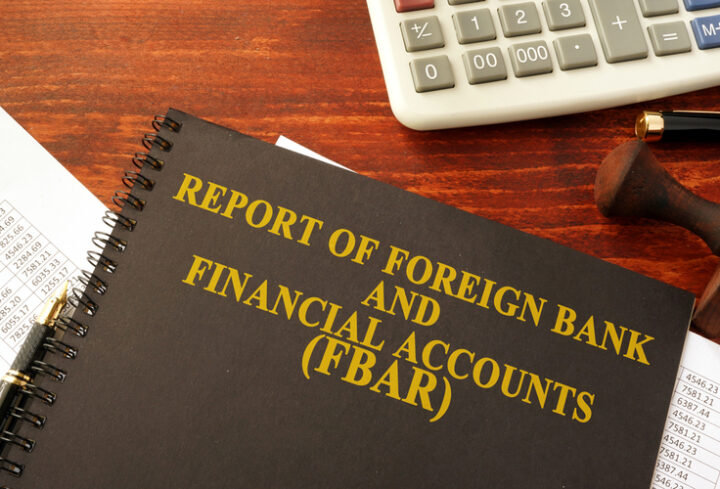
Expats must report foreign income and assets, including foreign bank accounts, when filing taxes in the U.S., provided the balance of accounts exceeds $10,000. Since the IRS penalizes expats who have not filed FBAR, read on for more details about who needs to file, FBAR maximum account value and how to file.
What Is FBAR?
FBAR stands for Report of Foreign Bank and Financial Accounts. By completing this report, expats indicate the total of their foreign-held assets. The form does not need to be completed if expats do not meet the maximum value threshold, but must be completed by June 30 of any year in which FBAR maximum account value is met.
While assets held in a foreign country may be in the currency of that nation, the IRS requires that expats convert currency into U.S. dollars when completing their FBAR.
Who Should File?
The FBAR maximum account value determines who should file. “Maximum value” refers to the largest account balance across a 12-month period, regardless of subsequent withdrawals that may lower the account balance below the filing threshold. Expats who have less than $10,000 in their accounts do not need to file.
The $10,000 maximum reflects the total balance across all foreign accounts held by expats, rather than representing a maximum per-account value.
Whenever the balance of foreign-held accounts surpasses $10,000, expats must file. Note that the filing requirements reflect any time in the year. Thus, if total account balances exceed $10,000 for one day, one week or one month, expats must file.
What Types of Accounts Are Included Under FBAR?
Savings accounts, checking accounts, brokerage accounts, mutual funds and securities are all included in the FBAR requirements. Bank accounts must be included even if they do not generate interest or dividends.
How Do You Know If You Must File?
The IRS assesses penalties if it determines that a taxpayer should have filed FBAR and did not. Fees can reach $10,000 for lack of filing over a “reasonable cause,” even if that cause is not knowing about the requirement to file.
However, if the IRS determines a willful intent not to file, there may be criminal penalties and fees of up to 50% of all account balances. Given the seriousness of these penalties, it’s critical that expats understand how to calculate maximum account value for FBAR, to determine whether they need to file.
Can I Get an FBAR Extension?
You cannot get an extension of the FBAR, even if you are taking an extension on filing your taxes. The IRS prefers that you file with incomplete information and amend FBAR later if waiting for complete information would delay a return past June 30. FBAR must be paid by or before June 30 to lower your chance of facing penalties.
Get Help With FBAR
Maintaining compliance with U.S. tax laws reduces stress and protects against penalties and fees associated with non-compliance, even when unintentional. Now that you understand what is the maximum account value in FBAR and how to file, get help from a CPA that understands the unique circumstances faced by expats living and working internationally. Expat CPA has helped expats file their taxes correctly and on time, while taking advantage of all tax credits for which they are eligible. Expat CPA can ensure all relevant accounts are reported on FBAR.
To learn more, or set up an appointment for tax services, contact us today.
